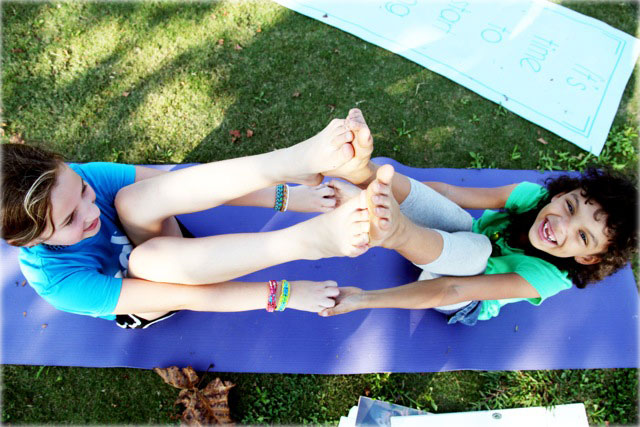
6 May 2020 HYN Himalayan Yoga Academy
Why Yoga for School Children? Yoga is the rule of running existence and is as old as life itself. Yoga imparts a specific attitude to life, a manner of living as well. It deals with how to live with fullest maturity and better manner. It expedites the natural process of evolution in all aspects of life and of consciousness as well.
Yoga as Knowledge
The ultimate purpose of Yoga is to gain the right knowledge through the yogic ways of teaching. Yoga has been initiated as a very specific educational function purpose of achieving a higher state of consciousness on the evolutionary scale of personal fullness.
Yoga Educated One
The yoga-educated one has the true sense, integrity, a healthier lifestyle, happier living who lives a balanced and harmonious state of body, mind, and soul. A healthy and happy person is a person whose karmas, thoughts, behaviors, values, and norms can determine the higher consciousness. The problems of life, like misunderstanding, life disorders, materialistic values, dissatisfaction, desires & ambitions, unrest body & mind, cause pain, suffering, and many more troubles in life. So, Yoga removes the root of the problems.
Yoga Application
- Yoga Hygiene: self-reliance, e.g., Tattva Shuddhi – Purity of five elements, Trust in Nature, Living in harmony, personal cleansing – jala Neti, Kapalbhati, Agnisaara, Yama and Niyama, etc.
- Sitting or Meditation Postures: Sukhasana, Dhyana-viraasana, Vajrasana, Bhadrasan
, - Namaste Pranayama, Clapping, AUM Chants, Mantra Chants – e.g., Sarasvati Mantra
“AUM (HREEM AIM HREEM) SARASWATAI NAMAH” - Warm up Kriyas: Baby Rock, Butterfly, Shakti sanchalana, Squat-Rise, Pulling Rope, Pair-Acts, Pair-Boat posture
- Standing Position – Tadaasana, Lord Krishna pose, Dhrubasana, Lord Shiva Pose, Garudaasana
- Sitting Position – Mandukaasana, Balasana, Marjarisana, Vyagrasana, Simhasana, Yoga Mudra in sitting circle position
- Supine Position: Gudasana, Jhulasana, Druta Halasana, Sarvangasana, Happy Baby, Baby Play, Chakrasana in Walking
- Prone Position: Bhujangasana, Shalabhasana, Dhanurasana, Parvatasana in pair with crawling
- Pranayama: Shitali Pranayama, Nadishodana Pranayama, Bharamari Pranayam
- Yoga nidra – attitude training, links the five senses with sixth sense, the mind
- Sangita (Music) Dhyana: Music Meditation, Imagining Meditation, Mantra Meditation
By Subodh Simkhada
